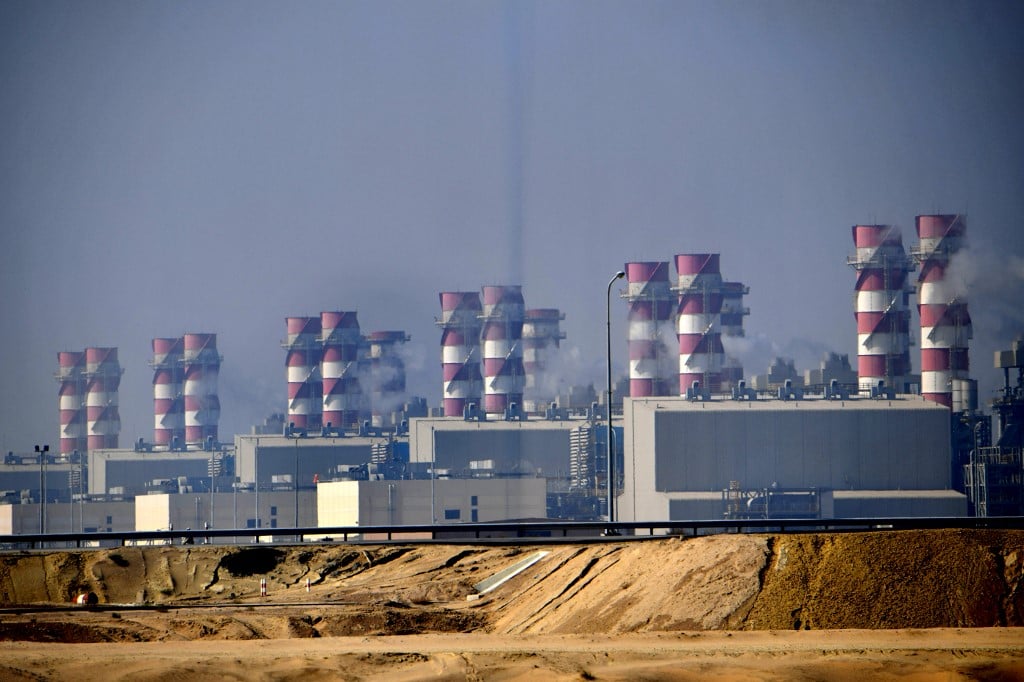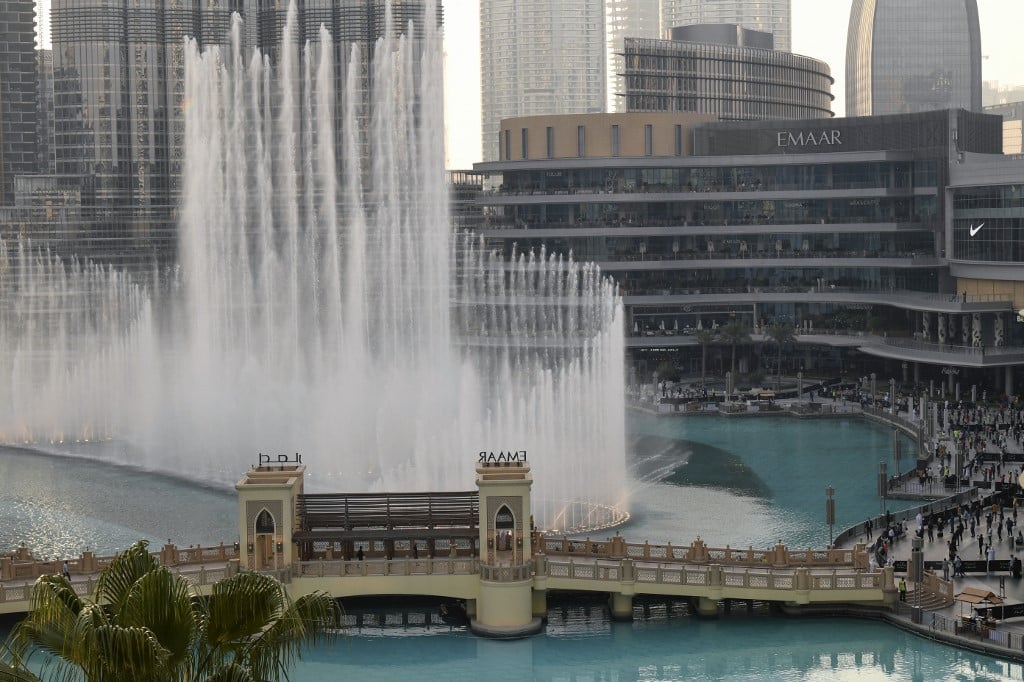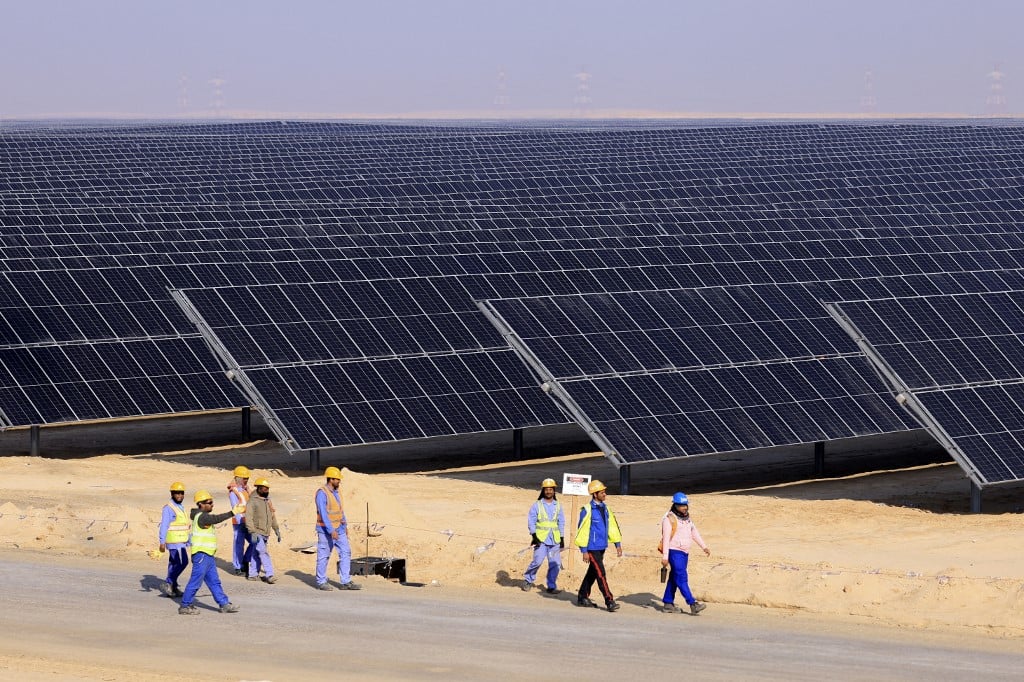
Author: Nino Orto
Introduction
Water scarcity and a lack of access to clean water are becoming increasingly common for millions of people worldwide due to rising surface temperatures and changing climate patterns. In the Middle East, one of the driest regions on earth, nations are pushing for significant investment in technologies and strategies to address these challenges. The most common is desalination, a process to extract salt from seawater and obtain water for human use, agriculture and industry. The countries in the Gulf Cooperation Council (GCC) have been relying for decades on desalination plants to meet growing water demands and address the vital threat that global warming poses. Nevertheless, although new desalination plants continue to be built in the region and investments in better and more sustainable models are underway, there are still fundamental issues to consider for the long-term viability of this model.
GCC water overview
The Gulf countries have the lowest annual rainfall and the highest evaporation rates globally. The most prominent Gulf nation, Saudi Arabia, is the largest country in the world without rivers or surface water. Among its neighbours, Saudi Arabia has the lowest annual rainfall (below 150 millimetres) and one of the highest evaporation rates in the world (over 95% of surface fresh water availability).
At the same time, water consumption in the GCC is among the highest worldwide, with daily per capita water consumption of 100 litres in Oman, 265 litres in Saudi Arabia, 300 litres in the United Arab Emirates, 330 litres in Kuwait, 440 litres in Bahrain and 470 in Qatar. By comparison, Germany’s daily consumption per capita is 115 litres.[1]
In the coming years, a steady population increase and fast socio-economic growth will only boost the demand for clean water while water resources continue to decline. According to a report by Orient Planet Group (OPG), future average consumption in the GCC will reach 33 million cubic metres (MCM) in 2050, while the projected future storage stands only at 25 MCM. The OPG report also stressed that in the next 30 years, the GCC countries will need 77% more water to meet the increasing demand from their residents. According to recent studies, the GCC’s population is predicted to reach 57 million by 2025 and almost 71 million by 2050.[2]
Desalination plants
For decades, the GCC has depended on desalination plants to meet its need for clean water. Desalination is the process of removing salts and minerals from seawater to produce fresh water destined for human use as well as other uses in industry and agriculture. There are two types of desalination technologies: thermal desalination and membrane desalination, which is often called reverse osmosis. While thermal desalination uses the energy generated by solar panels to heat seawater, reverse osmosis employs a permeable membrane to separate drinking water from other particles and salt. Reverse osmosis is the most common technology in the GCC, although a mix of the two technologies is used in desalination plants in the region.
The GCC countries are world leaders in desalination, with a total capacity in 2020 of 97.2 million cubic metres per day (MCM/d), accounting for approximately 40% of the total desalinated water globally. This is expected to increase to 300 MCM/d by 2050.[3]
Desalinated Water Produced
The world’s largest desalination plant is Ras al-Khair, located on the Persian Gulf coast of Saudi Arabia, 75 kilometres north-west of the city of Jubail. Commissioned in 2014, the plant has a daily production capacity of 1.025 MCM of desalinated water, of which some 800,000 cubic metres (m3) goes directly to the capital Riyadh while the other 200,000 m3 are distributed to neighbouring regions.
According to MEED Projects research, GCC governments plan to invest $76 billion in water projects in the coming years to increase their water storage capacity. The GCC’s seawater desalination capacity will further improve by 37% in the next five years, with investments by the public and private sectors up to $100 billion, of which $32 billion will be allocated to the desalination market by 2027.
Share of Desalinated Water in Municipal Water Supply
Source: https://www.researchgate.net/ – Fanack water
Although desalination is the preferred option to tackle the increasing water demand in the GCC, there are limits to its implementation.
Challenges
The GCC countries face crucial challenges, including water pollution, high agricultural demand for water, and outdated urban water supply and wastewater treatment infrastructures. Although desalination will help reduce the stress that a growing population and inefficient wastewater systems are putting on natural resources, it seems extremely unlikely it will be enough to resolve the chronic problem of access to clean water.
In addition, desalination comes with a high environmental cost and is an energy-intensive process that heavily impacts the GCC’s carbon footprint. The GCC countries are particularly sensitive to the effects of global warming and, as temperatures rise, so does the demand for water in municipalities and agriculture, which in turn requires the burning of fossil fuels to operate the desalination plants.
Generous subsidies for electricity and water also mean that the GCC nations have the highest global consumption rates of these utilities, negatively impacting the adoption and implementation of best practices to manage and save wastewater by their citizens.

The social and political issues associated with government subsidies have been a topic of debate for decades. However, comprehensive and consistent water tariff reform is now increasingly becoming a matter of national security to create a sustainable environment for the future.
A hidden cost of maintaining the large-scale production of desalinated water is the brine produced. Brine is made up of the salts extracted with other substances during desalination and which form a hyper-saline mixture that has a potentially harmful impact on the marine ecosystem. World brine production is estimated at around 142 MCM/d, 55% of which is produced by Saudi Arabia, the United Arab Emirates (UAE), Kuwait and Qatar.[4]
Although there is a general lack of research on the impact of brine on the marine ecosystem, a new study reveals that the main changes observed were related to a decrease in and loss of biodiversity in the community structure of planktonic populations of the seawater, which form the base of the marine food web.[5]
Geopolitical implications
The GCC countries rely on desalination plants for their water security. However, desalination plants need energy to operate. For this reason, any policy involving energy share and internal and external consumption, including fluctuations in the international oil stock market, will distort how water is managed and operated in desalination plants. For the same reason, any political or military crisis in the region could affect water access for the GCC.
According to 2009 leaked U.S. State Department diplomatic cables, an attack on Saudi Arabia’s desalination plant in Jubail would force the entire population of Riyadh to evacuate ‘within a week’, as the plant delivers over 90% of the city’s drinking water.
Increasing tensions between Iran and Saudi Arabia, as well as Riyadh and the Houthi paramilitary group in Yemen, also underline the limits of relying on desalination plants to secure a vital resource such as clean water. According to numerous analysts, desalination plants could easily be sabotaged, struck by missiles or air attacks or be subjected to a cyberattack that would eventually disrupt the infrastructure’s ability to operate.
Besides potential attacks, the GCC countries have an additional issue related to the quality of their water. Any oil spillage caused by human error, or a natural disaster, could pollute the Gulf and stop desalination plants from operating.
One example is the FSO Safer, an oil tanker that holds more than 1.1 million barrels of oil and is anchored approximately 6 kilometres off the coast of Yemen in the Red Sea. The vessel is in constant and acute danger of explosion or oil spill because of the lack of maintenance in the last seven years following the outbreak of the civil war in Yemen.
According to the United Nations, an environmental disaster and a humanitarian crisis for the population living along the coast (including in Saudi Arabia) is just a matter of time as several vital systems and ship generators are no longer active. These threats underline once again the high risk to the GCC’s water supply posed by external factors.
The future of desalination
Due to the costs associated with desalination plants and the unsustainability of this model in the future, GCC governments are now pushing for more efficient and less energy-intensive technologies to reduce their impact on the environment and human health.
Consequently, GCC nations are increasing their investments in clean energy as a critical element of economic diversification and preparations for a post-oil economy. The two most important economies, Saudi Arabia and the UAE, have committed to producing 50% of their energy from renewables by 2030 and 2050 respectively while increasing their investments in renewable technologies.
Solar energy currently represents 94% of the renewable energy in the GCC countries, particularly from solar photovoltaic projects, which alone account for 91% of the potential power generation.[6]
In recent years, solar energy has become the most common renewable energy source across the region for several reasons. These include innovations in the power efficiency of solar modules, digital and maintenance software, and the evolution of robotic-clean solutions that pushed efficiency ratings up to 99%.

Nevertheless, different studies have highlighted several problems connected with large solar desalination projects. These include the spatial distribution that could affect the outputs of the plants, a lack of research on the sustainability of the model and whether solar can be combined with other renewable energy sources as well as the limitation of being unable to generate energy at night.
But the main challenge for the GCC countries, which have among the highest dust intensity in the world, is the accumulation of dust on solar panels and the resultant negative impact on the panels’ performance.
Water reuse and sustainable systems
Given the risks of relying on desalination plants, GCC governments have already spent billions of dollars on sustainable alternatives and are investing in more efficient technologies for water reuse.
The collection and treatment of wastewater is gradually expanding. As a result, treated sewage effluent and water reuse for agriculture are increasingly helping to meet the water demand in the region.
The benefits of water reuse include a cheaper and more profitable way to obtain water without the enormous amount of energy needed for the desalination process and a more acceptable and sustainable impact on the environment.
However, despite investment, only 39% of the treated wastewater is used for agriculture. Furthermore, as studies have underlined, the boost in water reuse will only be effective in reducing the water needs for crops and ornamental areas.
The way forward
Water remains an existential issue for the GCC countries, as any geopolitical or economic shift that impacts the operation of desalination plants would jeopardize the survival of millions of people.
Despite the efforts made by GCC governments to diversify their water supply, desalination plants are the most common and adopted solution to meet the growing water demand. As a result, the high financial and environmental cost could prove unsustainable in the medium and long term.
Although new technologies will allow for more energy-efficient and less environmentally damaging desalination processes, it is highly unlikely that these alone will resolve the region’s chronic water scarcity.
Wasteful lifestyles, water subsidies and low efficiency in water and wastewater management are all factors that could have catastrophic results if not addressed in time.
Implementing policies that will encourage more efficient and responsible water use is the only way to address water shortage in the Gulf efficiently.
[1] https://wstagcc.org/wp-content/uploads/2017/11/1-Omar-Ouda-GWC_WSTA-14-.pptx.pdf
[2] Labour Migration, Skills Development and the Future of Work in the Gulf Cooperation Council (GCC) Countries – Scientific Figure on ResearchGate. Available from: https://www.researchgate.net/figure/Projected-Population-Growth-Rate-2016-2030-for-the-GCC-Countries_fig3_323321589 [accessed 15 Feb, 2023]
[3] Buzaina Moossa, Priyank Trivedi, Haleema Saleem, Syed Javaid Zaidi, Desalination in the GCC countries- a review, Journal of Cleaner Production, Volume 357, 2022, 131717, ISSN 0959-6526
[4] Edward Jones, Manzoor Qadir, Michelle T.H. van Vliet, Vladimir Smakhtin, Seong-mu Kang, The state of desalination and brine production: A global outlook, Science of The Total Environment, Volume 657, 2019, Pages 1343-1356
[5] Pedro Henrique Gomes, Silvano Porto Pereira, Tallita Cruz Lopes Tavares, Tatiane Martins Garcia, Marcelo O. Soares, Impacts of desalination discharges on phytoplankton and zooplankton: Perspectives on current knowledge, Science of The Total Environment, Volume 863, 2023
[6] IRENA (2019), ‘Renewable Energy Market Analysis: GCC 2019’. IRENA, Abu Dhabi.

